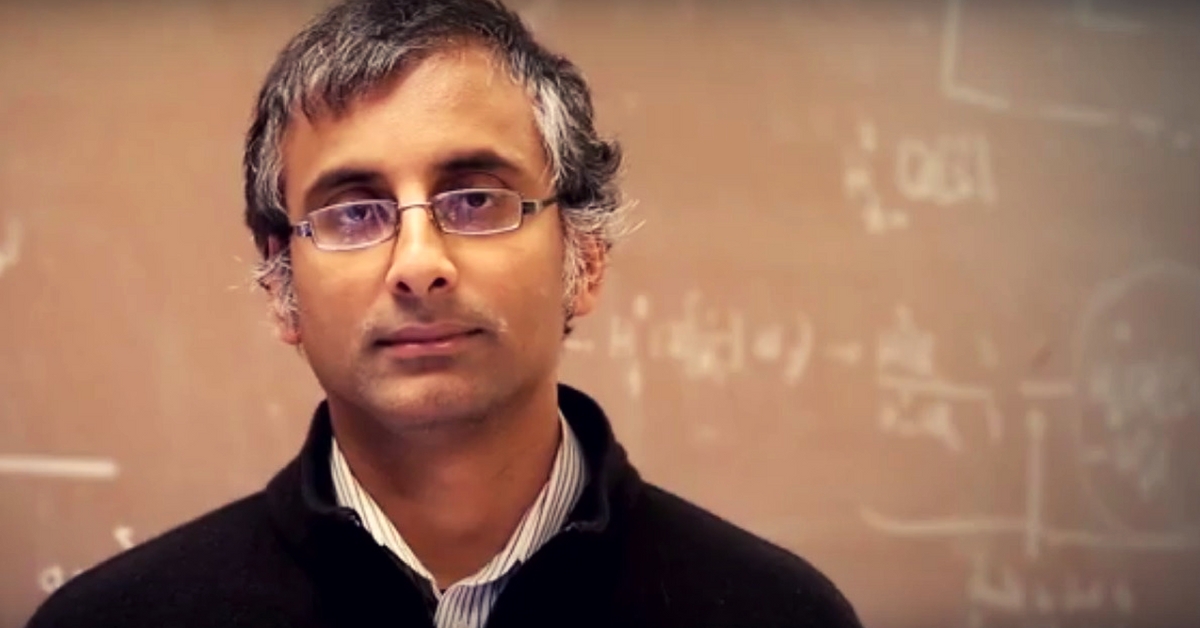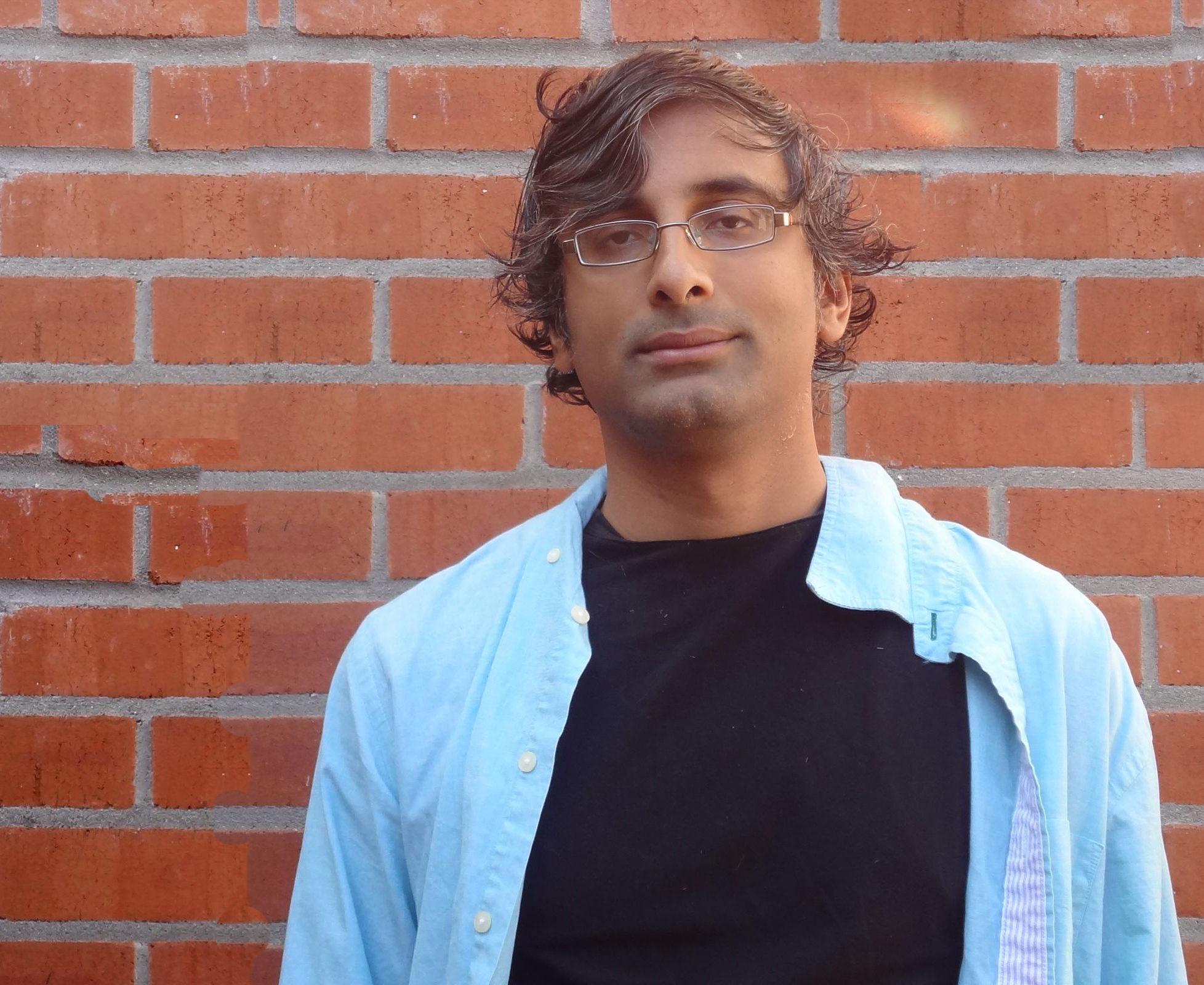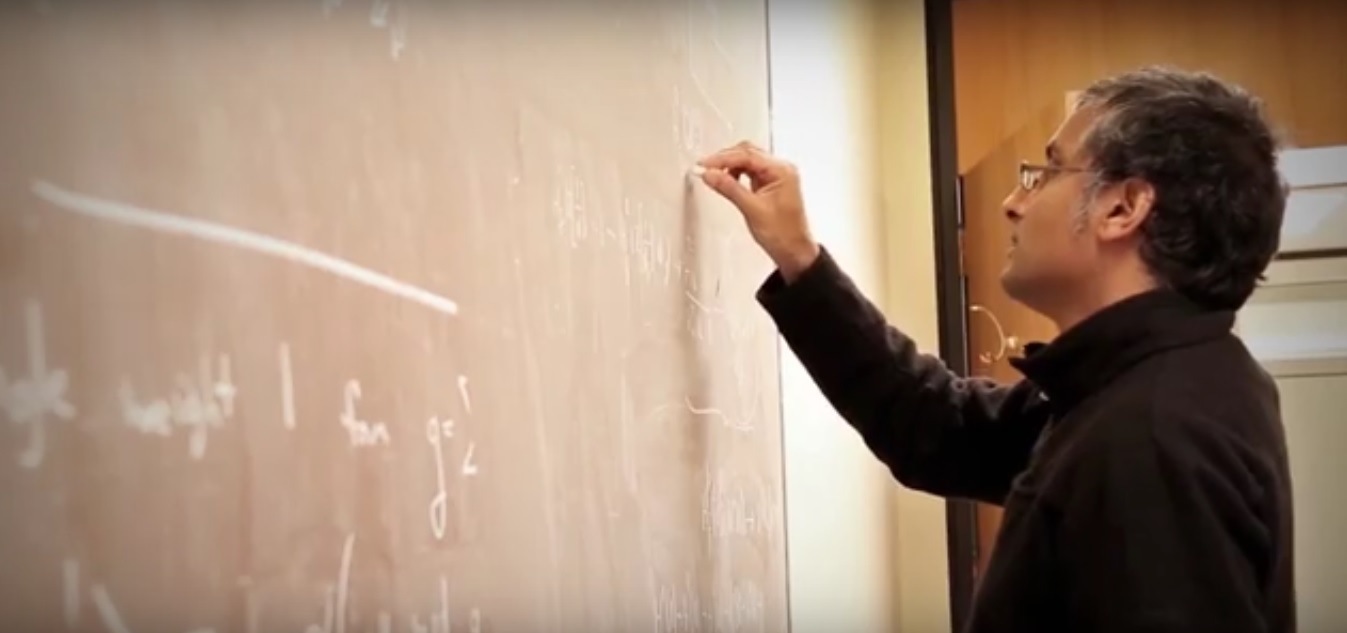Meet Mathematician Akshay Venkatesh Who Won the Infosys Prize for His Research in Number Theory
Indian-Australian mathematician Akshay Venkatesh has been awarded the Infosys Prize 2016 in Mathematics for his exceptionally wide-ranging, fundamental and creative contributions to the modern number theory.

Indian-Australian mathematician Akshay Venkatesh has been awarded the Infosys Prize 2016 in Mathematics for his exceptionally wide-ranging, fundamental and creative contributions to the modern number theory.
“A mathematician, like a painter or poet, is a maker of patterns. If his patterns are more permanent than theirs, it is because they are made with ideas,” said the renowned English mathematician G H Hardy.
A mathematician’s work often seems mysterious to many. While one is familiar with the application of mathematics in varied fields, to most, what a mathematician does remains a question.

Simplifying his work and research in mathematics, Professor Akshay Venkatesh of Stanford University, says, “While some of the objects of our research are fairly accessible, like prime numbers, we also work a lot with esoteric concepts that take many years to wrap your head around. But other than that I think it’s similar to other sciences. We look at examples and do ‘experiments’ (sometimes numerical computations) and make simplified models of the situations we’re really trying to understand. If we find an unexpected pattern, we get excited and try to build a theory to explain it.”
Akshay has recently been awarded the Infosys Prize 2016 in Mathematics. Since 2008, this award has been given annually to people who have made significant contributions to the fields of Engineering and Computer Science, Humanities, Life Science, Mathematical Science, Physical Science, and Social Science.
“It is really a great pleasure to be recognized by the Infosys Science Foundation. I am familiar with the work of several previous winners of the Infosys Prize, and it is an honour to join that group,” says Akshay.
From being a child prodigy to becoming one of the most renowned researchers in the field of mathematics, Akshay’s journey has been full of achievements and accolades. Born in New Delhi, he moved to Perth, Australia, with his parents. It was soon evident that he was no ordinary child. At the age of 11, he won a bronze medal at the International Physics Olympiad in Virginia. Realising that his aptitude lay with mathematics rather than physics, he made the switch and went on to win two medals at the International Mathematics Olympiad.
Ask what inspired him to take up mathematics and he doesn’t know. “I have been interested in mathematics for as long as I can remember,” he simply says.
Being a child prodigy meant that Akshay was much younger than his classmates. He finished high school when he was 13 and went to the University of Western Australia, graduating with first class honours in mathematics in 1997, becoming the youngest student ever to do so.
“Thankfully, I never felt ‘celebrated’! Although my classmates were older than me, everyone got used to it pretty quickly and it never seemed to be a big deal,” he says.
He moved from Perth to Princeton to work on his PhD thesis ‘Limiting forms of the trace formula’ under the guidance of renowned mathematician Peter Sarnak when he was 17. In 2002, he earned his PhD at the age of 20. Since then, he has gone from holding a post-doctoral position at MIT to becoming a Clay Research Fellow and, now a professor at Stanford University. He has worked at the highest level in number theory, arithmetic geometry, topology, automorphic forms and ergodic theory. He has won the Salem Prize, the Packard Fellowship, and the Sastra Ramanujan Prize too.
Also read: Indian-American Scientist Wins Breakthrough Foundation Prize, Also Called ‘Oscars of Science’
He has been awarded the Infosys Prize for his contributions to the modern number theory. The Infosys Prize Jury Chair Srinivasa S.R. Varadhan praised Akshay for the way his work weaves together threads from many different fields, creating a wonderful fabric.
“It’s a bit hard to explain my research specifically without a blackboard and a fair amount of time, but I can say a bit about number theory. A typical question we study is ‘Can we solve such-and-such an equation, with all the unknowns being whole numbers?’ These questions are easy to state and often impossible to solve. The most interesting ones are connected to many other parts of mathematics, and that’s what makes them really fun: you end up using Geometry, Calculus, Symmetry, and everything in the book,” he says.
Over the years, many great minds have had an influence on Akshay.
Since childhood, he used to observe his father, a mechanical engineer, and the way he tried to work things out by solving questions. Thay left a big impression on him.

Image source: YouTube
“I’ve had a very lucky career, in that I’ve been both inspired and encouraged, at every stage, by the mathematical community. Indeed I am receiving the Infosys prize for my work; but in fact this work is a thread in a much greater fabric of research woven by that community,” he says.
Playing the dual role of a professor as well as a researcher, Akshay is an inspiration to many of his students. As someone who enjoys working in detail with his students, he prefers teaching only one class at a time. He says that he particularly enjoys teaching undergraduate courses, “Undergraduate teaching is nice in a different way. It forces you to put your subject in a larger context. You can’t go too far off into the abstract because the students, quite sensibly, do not care.”
When asked how he envisages the future of mathematics, he smiles and says, “I hope that I can’t predict it! I would like for mathematics of the future to be so fantastic that I cannot even recognize it.”
Also read: TBI Blogs: Meet the Engineer Who Is Making Science Fun for Children in 76 Schools
Like this story? Or have something to share? Write to us: [email protected], or connect with us on Facebook and Twitter.
NEW: Click here to get positive news on WhatsApp!
If you found our stories insightful, informative, or even just enjoyable, we invite you to consider making a voluntary payment to support the work we do at The Better India. Your contribution helps us continue producing quality content that educates, inspires, and drives positive change.
Choose one of the payment options below for your contribution-
By paying for the stories you value, you directly contribute to sustaining our efforts focused on making a difference in the world. Together, let's ensure that impactful stories continue to be told and shared, enriching lives and communities alike.
Thank you for your support. Here are some frequently asked questions you might find helpful to know why you are contributing?


This story made me
-
97
-
121
-
89
-
167














